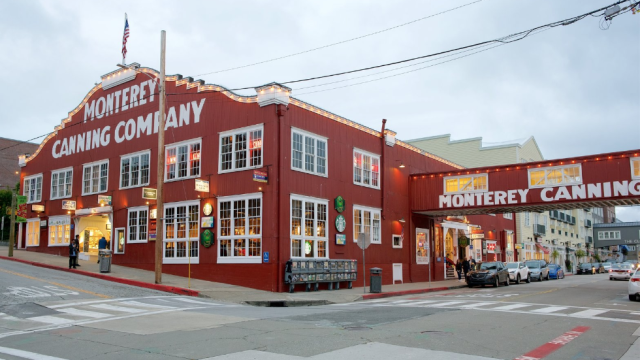If there’s a threat to the legacy of John Steinbeck, it’s inclusion in his own country’s education curriculum.
The Grapes of Wrath offers easy, obvious symbolism and American history tie-ins. It’s a book vibrating with relevance to modern conflicts around labor and policing, though many a student has been made to contemplate it as a series of glyphs to decode, its cross-country pleasures shrunk to a turtle crossing a highway. The less said of his primary school staple The Pearl – the rare book of his sunk by his trademark didacticism – the better. Steinbeck in the classroom can be made dull and rote, a incredible trick for a man whose recurring themes include primal violence and “tbh prostitutes are pretty cool.”
In one of his earlier books The Pastures of Heaven, Steinbeck imagines a family of two, a widower named Junius and his son Robbie. Despite their poverty, Robbie is an energetic boy and a leader of many imaginative games in the schoolyard. Junius does little by way of “work,” but constantly hangs out with Robbie and the other school children by a stream, reading and extemporizing according to his own philosophy. When the local schoolteacher takes it upon herself to push Robbie out of his lazy, impoverished ways she only succeeds in embarrassing him. He runs out of the schoolhouse in shame. Ultimately Junius, deciding they need more sophistication, takes Robbie and leaves the Pastures of Heaven forever. In the spirit of Steinbeck, I’ll underline that I’m recounting this because I see a connection between Robbie and children who are turned off from learning with pleasure for the sake of learning “the right way.”
And so for English class refugees like myself, I’d like to propose reframing Steinbeck as light summer reading. And there’s no better place to argue this than Cannery Row. It’s a slight, episodic volume with memorable characters who form rivalries and friendships, plan surprises and schemes. It’s a neighborhood filled with immigrants and workers, professionals and layabouts. Steinbeck lays it all bare in the opening paragraph: “Cannery Row in Monterey in California is a poem, a stink, a grating noise, a quality of light, a tone, a habit, a nostalgia, a dream… Its inhabitants are, as the man once said, ‘whores, pimps, gamblers, and sons of bitches’ by which he meant Everybody. Had the man looked through another peephole he might have said, ‘Saints and angels and martyrs and holy men,’ and he would have meant the same thing.”
So blow off responsibility for an afternoon, open the book by a stream and spend some time with Doc, Lee, Mary and Mack’s crew.

